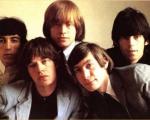Making Sense of Popular Culture
Dr Jack Fawbert
- Regions:
- Cambridgeshire, Norfolk, Suffolk, Bedfordshire, Essex
- Notice Period:
- Emergency (maybe less than one week's notice)
- Type:
- Academic Social Sciences
- Fee:
- Expensed
- Category:
- Humanities
- Updated:
- 18th August 2025
- Tagged:
- Popular Culture | High Culture | Folk Culture | The Western Canon
We often talk about 'popular culture', but what does it mean? Do we mean 'well liked by many people.' If so, how many people? What about so-called ‘high culture’? Some of that is liked by a lot of people. Maybe by 'popular culture' we mean work that is deliberately setting out to win favour with the people. This is the view that ‘popular culture’ means mass culture that is deliberately produced for mass consumption. Such commercial culture is often contrasted with ‘folk’ or ‘organic’ culture of the past. So, maybe the term 'popular culture' should be confined to culture actually made by the people for themselves.This is the view that ‘popular culture’ is culture of, by and for the people not imposed from above; sometimes called ‘folk culture’. However, the raw materials for such culture may be commercial productions. Or maybe 'popular culture should be defined as inferior kinds of work. In this view ‘popular culture’ is often contrasted with ‘high culture’. This talk discusses these alternative views of 'popular culture' using such disparate examples as art, music, film, football, fashion, opera, ballet and literature.
Views: 290 | Enquiries: 0About Dr Jack Fawbert
I am a retired Senior University Lecturer in Sociology and Criminology. During my career I worked at several UK universities, including Leeds Metropolitan University, De Montfort University, the University of Bedfordshire and Anglia Ruskin University. I was Course leader for Sociology at two of those universities and I was also the external examiner for Sociology at the University of Northampton and the University of Ulster.
During my career, I gave lectures and talks at academic conferences for organisations such as the British Sociological Association, the Association of Teachers of Social Science and the Leisure Studies Association at the Universities of Manchester, Greenwich, East Anglia, York, Leeds Metropolitan, Brighton, Chester, Bedfordshire, Roehampton, Luton and Central Lancashire. I have also given talks at 'A' Level Sociology Revision conferences in London and Manchester as well as organising 'A' Level Sociology Revision Conferences at three of the universities I worked at.
After I retired I worked as a tutor at the Workers Educational Association for three years and the Open University for a further three years. I am now involved with the University of the Third Age (U3A) where I am group leader for the online sociology group as well as being a member of the Bury-St-Edmunds U3A.
Since joining the U3A I have given talks both online and in person with the titles, 'Blacklisted: Corporate Crime and State Conspiracies', 'Hoodies: Folk Devils and a Moral Panic for the New Millenium', 'Making Sense of Popular Culture', 'Mods and Rockers and Moral Panics', 'Poverty: A Sociological Perspective', 'Sociology of Suicide', 'Sociology, Gender Inequality and Feminism', 'What is Science?', 'What is Social Class?', ‘The Family: From the Modern to the Postmodern?' and 'What is Sociology?' These should give you an idea of the range of topics that I could offer talks on that can be pitched at a variety of audiences from 'A' Level at schools and colleges to U3A talks to leisure classes.
Other Talks on SpeakerNet by Dr Jack Fawbert
- Blacklisted: Corporate Crime and State Conspiracies
- Hoodies: Folk Devils and a Moral Panic for the New Millenium
- Mods and Rockers and Moral Panics
- Poverty: A Sociological Perspective
- Sociology of Suicide
- Sociology, Gender Inequality and Feminism
- What is Science? A View From the Edge.
- What is Social Class?
- What is Sociology?
- ‘The Family’: From the Modern to the Postmodern?
Send a message to the speaker
If you are interested in this talk and wish to contact the speaker, please complete the following form:


